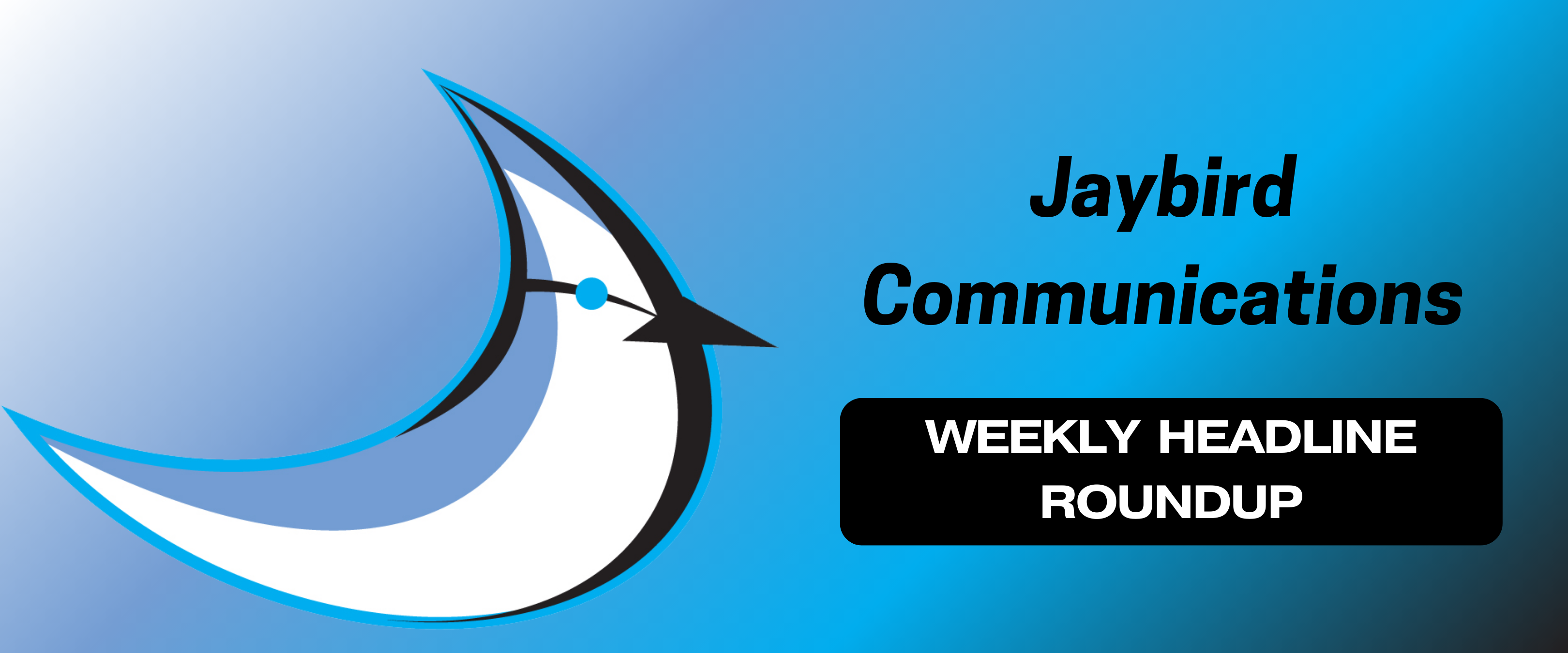Welcome to Volume 3 of our Weekly Headline Roundup!
This week, we’re looking at new AI tools for creators, copyright law and AI, tariffs, the US PROs, and how to better fight streaming fraud.

YouTube launches new AI music tool… that makes instant copyright-free video soundtracks
YouTube is rolling out a new feature that allows creators to instantaneously generate custom (and copyright-free) instrumental backing tracks through AI technology.
– Tim Ingham, Music Business Worldwide
The update to YouTube’s Creator Music marketplace enables video creators to produce AI-generated music via text prompts.
This free “Music Assistant” feature is being gradually introduced to creators who participate in the YouTube Partner Program in the US and have access to Creator Music, the platform’s commercial music licensing resource launched in 2023.

Copyright and AI in a World of Whiplash Public Policy
– David Newhoff, The Illusion of More
I have not added a copyright post here since March 19, when the DC Circuit Court of Appeals affirmed in Thaler v. Perlmutter that works produced autonomously by generative AI (GAI) are not protected under U.S. copyright law. Although it is good to see the human authorship doctrine in copyright left undisturbed, it is a fleeting moment of sanity within a warped national reality.
As reported earlier, Open AI appealed to the administration’s focus on China as a basis to argue that “beating China” requires ignoring the copyright claims of authors whose works are used to train AI models. Not only is that claim wrong on it’s face, but the conduct of the current administration vis-à-vis civil rights forces millions of Americans to ask whether China is an adversary or a role model

What Is Going On With U.S. PROs?
Earlier this year, the Copyright Office opened a notice of inquiry (NOI) into U.S. performing rights organizations (PROs) – asking the music industry, venues and broadcasters that hold performance licenses to weigh in on whether or not they should face any new reform. Triggered by a so-called “proliferation” of new PROs in the market, and PROs alleged “lack of transparency,” it’s shaping up to be one of the most important issues facing the music publishing business this year. On Friday (April 11), the industry’s chance to submit comments came to a close. As the comments are now being made public, Billboard explains the origins of this inquiry and its possible implications.
– Kristin Robinson, Billboard

National Association of Broadcasters and SoundExchange reach a settlement on webcasting rates for 2026-2030
US neighbouring rights society SoundExchange and the National Association of Broadcasters (NAB) have filed with the US Copyright Royalty Judges a proposed settlement of rates and terms in the pending litigation over the 2026-2030 royalty rates for non-subscription digital audio transmissions by commercial broadcasters (webcasting).
– Emmanuel Legrand, Creative Industries News

Sony, Warner Chappell, Concord, Reservoir urge less regulation of PROs in responses to US Copyright Office inquiry
Leading music publishers including Sony Music Publishing, Warner Chappell Music, Concord, and Reservoir have submitted responses to the US Copyright Office’s inquiry into Performance Rights Organizations (PROs).
– Ali Nawaz Khan, Music Business Worldwide
All have argued strongly for reduced regulation in the sector.
The US Copyright Office (USCO) launched its investigation in February, examining “questions related to the increase in the number of PROs and the licensing revenue distribution practices of PROs”.

ASCAP, BMI, GMR, and SESAC have their say in US Copyright Office’s PRO inquiry…
The United States Copyright Office (USCO) has the PRO market in its crosshairs.
– Murray Stassen, Music Business Worldwide
In February, the USCO launched a significant inquiry into the Performance Rights sector aimed at exploring “questions related to the increase in the number of PROs and the licensing revenue distribution practices of PROs”.
The modern US business now counts six PROs, including the ‘traditional’ organizations (ASCAP, BMI, and SESAC) alongside three newer entrants: Global Music Rights (founded in 2013), PRO Music Rights (2018), and AllTrack (2019).

How Rising Tariffs Are Shaking Up the Music Merch Business: ‘I Almost Had a Heart Attack’
Six months ago, a stadium-concert headliner decided to create tens of thousands of high-end T-shirts and hoodies to “rival any streetwear brand and be able to sell it for less than Sabrina Carpenter or Billie Eilish,” says Billy Candler, CEO/co-founder of Absolute Merch, a 13-year-old company that works with 30 artists. Candler arranged to purchase the shirts from China, then ship them on April 9, two weeks before a new U.S. tour.
– Steve Knopper, Billboard
But on April 2, President Trump imposed an 84% tariff on Chinese imports. Then, in the next few days, he boosted them to 104%, then 125%, then 145%. With each increase, Candler says, “I almost had a heart attack. It’s just exploded our plan.” As of Saturday (April 12), the company’s freight order has been “literally sitting in Customs waiting to be cleared,” with new tariffs imposed.

To Fight Streaming Fraud Effectively, Distributors & DSPs Must Work Together. Here’s How
Last year, I wrote an op-ed titled “Fighting Streaming Fraud at the Distributor Level.” In it, I discussed the complexity of streaming fraud, where it comes from and how it can be solved with all industry stakeholders working together. At Symphonic Distribution, we’ve worked to create resources for our clients, such as an analytics tool that shows fraudulent streams and best practices for streaming safely while utilizing KYC (know your customer) efforts to combat increases in fraud and championing the use of identity verification. All of these efforts, along with continued collaboration between members of the Music Fights Fraud Alliance (MFFA), have led to a reduction in instances of fraud.
– Jorge Brea, Billboard

